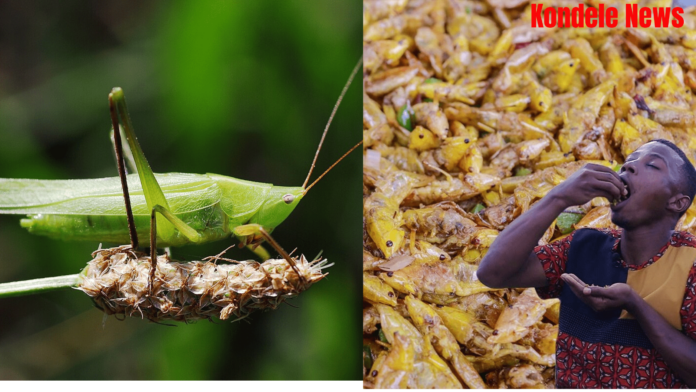Nsenene, a popular street delicacy in Uganda, refers to long-horned grasshoppers that are spiced, crispy, and crunchy, resembling a popcorn-like treat during the wet season.
Captured between May and November, nsenene undergo a process where their wings and legs are removed and they are thoroughly washed.
They are then fried with plenty of onions, chili, salt, and various spices. The grasshoppers release their own oils during frying, eliminating the need for additional cooking oil and resulting in crisp, crunchy snacks.
According to Veronica Omondi, a Kenyan nutritionist, grasshoppers are highly nutritious, containing approximately 40% protein, which is higher than other sources like chicken, eggs, and beans.
They are also rich in calcium and iron, minerals that support immune function and contribute to healthy teeth and bones. Iron content in nsenene also helps in reducing anemia.
Nsenene are not limited to Uganda’s central and southwestern regions; they are also found in various countries including South Africa, Malawi, Ivory Coast, Congo, Ghana, Kenya, Burundi, Cameroon, Rwanda, Tanzania, Zimbabwe, Zambia, Madagascar, and Mauritius.

